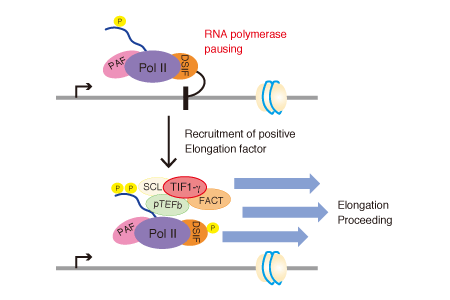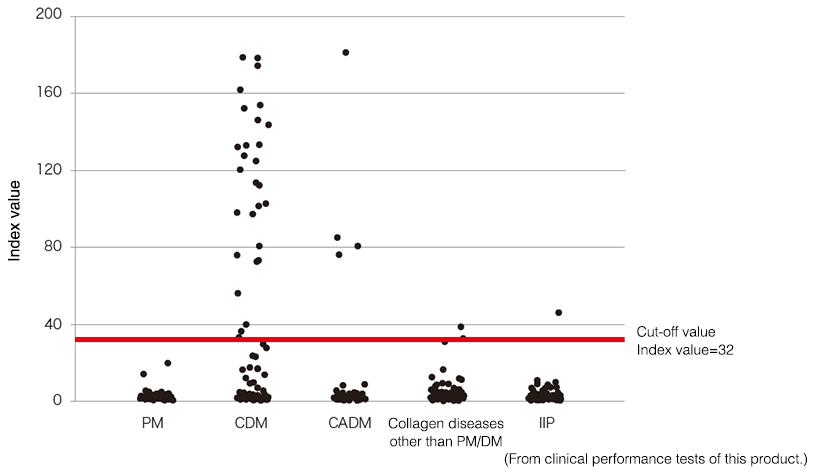Anti-TIF1-γ ELISA Kit
Products may not be approved for sale as in vitro diagnostics in all countries.
Please contact us for further details.
Customers in the US, please contact MBL International Corporation for details.  ⇒
⇒
| Product | Code No. | Size | Method | RUO/IVD/ CE-IVD |
IFU | SDS |
|---|---|---|---|---|---|---|
| Anti-TIF1-γ ELISA Kit | 7854R | 96 wells | ELISA |
![]() : Research Use Only Reagent
: Research Use Only Reagent
Characteristics of anti-TIF1-γ antibody-positive dermatomyositis.
About 20–30% of dermatomyositis is anti-TIF1-γ antibody-positive. Its characteristics are as follows.
- Anti-nuclear antibody tests using fluorescence antibody methods detect anti-TIF1-γ antibody as a Speckled pattern, and often at low titers (40–160×).
- Symptoms of myositis are mild and serum creatine kinase (CK) is often only mildly to moderately elevated. Dysphagia is frequent.
- Widespread intense erythematous skin rash, with a high frequency of dermatomyositis-specific skin rashes such as heliotrope rash, Gottron sign and Gottron papules. The V-sign, Shawl sign, whiplash-like erythema and poikiloderma are also significantly more common than in other types of specific autoantibody-positive myositis. Severe edema and blister formation might occur.
- Because many patients with complications of malignant tumors are positive, a thorough search for malignant tumors and careful follow-up is required for patients who test positive for this antibody.
- This antibody is prevalent in children with dermatomyositis.
Transcriptional Intermediary Factor 1-γ (TIF1-γ) protein
TIF1-γ (also known as TRIM33) is a 155 kDa protein that belongs to the TRIM family. This protein helps to maintain a heterochromatin-dependent transcriptional repressive state, as a transcriptional regulator of RNA polymerase II. It also promotes p53 and SMAD4 ubiquitination.

Anti-TIF1-γ antibody distribution by disease

Anti-TIF1-γ were positive in 30 (28.8%) of 104 patients with Classic DM (CDM) and in 4 (5.9%) of 68 with clinically amyopathic dermatomyositis (CADM). No specimens tested positive in polymyositis (PM) and idiopathic interstitial pneumonia (IIP). Two (1.1%) and one (0.6%) were positive for collagen diseases other than PM/DM.
*Upper limit of measurement range is an index of 150. Values > 150 should be taken as references.
Measurement principle: Enzyme-linked immunosorbent assay (ELISA)

The TIF1-γ protein coated in microcups is reacted for 30 minutes with diluted patient samples. The cups are washed to remove unreacted antibody, then enzyme-labelled antibody is added and reacted for 30 minutes. The cups are washed again to remove unreacted enzyme-labelled antibody, then enzyme substrate is added and reacted for 15 minutes. The reaction is stopped, and the index value is calculated from the absorbance of simultaneously measured specimens and standards.
